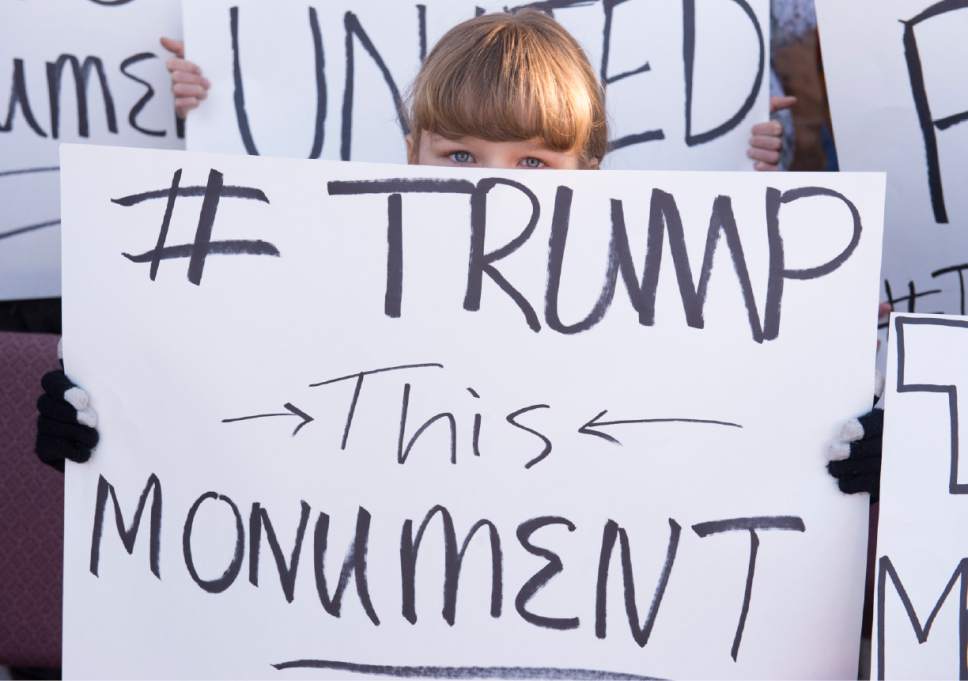This is an archived article that was published on sltrib.com in 2016, and information in the article may be outdated. It is provided only for personal research purposes and may not be reprinted.
Newspaper editors, like football coaches and people who have played The Doctor, are forever in the shadow of those who came before them.
One of the tall trees whose memory stood over me when I was the editor, and then editorial page editor, of the newspaper in Salina, Kansas, was Whitley Austin. And one of the things he was best remembered for, long after the events in question, was telling his community to get over it.
It was in November of 1964. I was paying more attention to "Bonanza" and Bugs Bunny than to the Department of Defense, and might not even be aware that there was such a place as Salina, when the news hit that town, and hit it hard.
Schilling Air Force Base was going to be closed down.
Secretary of Defense Robert McNamara, who was in the process of earning the nickname "Mac the Knife," had ordered the Pentagon to shut down Schilling and 94 other defense installations.
There wasn't anything wrong with Schilling or its 5,000 or so officers and airmen. It was a highly rated base for long-range bombers and a control center for a wing of ICBMs that were buried about the prairie. But the Vietnam War was costing billions and sacrifices had to be made.
The locals, of course, went loco. Certainly, this would be the End of Salina. A blue ribbon commission of Very Important Personages was assembled and sent on a Very Important Mission to Washington, D.C., to Talk Them Out of It. To absolutely no effect.
That's when Whit, who had been a member of that delegation, very much opposed to the decision and really worried about what the move would do to his subscriber base and ad revenue, spoke up.
Move on, he said.
Oh, sure, he wrote, it was a boneheaded move. In military parlance, SNAFU. In acceptable newspaper language, Situation Normal, All Fouled Up.
"Some officer who is in the Pentagon because aircraft seats are too small was thinking about sex rather than SAC, or an IBM machine blew a fuse, or a general lost at poker, or a programmer punched the wrong key," Austin told his readers.
But no community should depend on one thing for its survival, not even a thing as key to a small town as its big airbase.
"We have a sound economic future, with or without the base," Austin wrote. "We have good leadership and good people. A crisis either knits a town together or disintegrates it. Let's reach for our bootstraps."
The town came back. It was a long slog. Schilling was put to new purposes, much smaller than before but more useful to its neighbors. An airport with little traffic and a huge runway, favored by refueling dignitaries and officially listed as an alternative landing sight for space shuttles. A technical college. And a toxic plume of subterranean water that they are still cleaning up.
Now, in Utah, we watch as a decision made by people in Washington, who may be thinking about sex but are not using IBM machines, is portrayed as a crisis and, to listen to most of our elected leaders, as something that cannot do anything but disintegrate the communities near the new Bears Ears National Monument in southeast Utah.
Yes, a monument designation of more than a million acres sounds like a really big deal. Bigger than the closure of a relatively small air base.
But, really, it should have less of an effect. All the land was already federal property and producing little economic activity. All the dreams of big-time drilling and mining were never any more than that, and were never going to be.
Yet we hear so little from our supposed leaders about how Utahns should view the change as an opportunity. Make the best of it. Adopt, adapt and improve. Find the angle. Exploit the Native American ties and tourism possibilities to their maximum.
Nope. The people of San Juan County — at least those of them who are in power and aren't Native Americans — are being told by their governor and their congressional delegation that they are powerless to control their own destinies because people the locals will never meet have moved land the locals have never owned from one bureaucratic basket to another.
The insult to the people around the Bears Ears isn't from President Obama's monument. It's from the fellow Utahns who have no confidence in their ability to turn the corner without seeking mercy from Washington.
So what can we expect of our weakling neighbors when Washington really does something drastic. Like close Hill Air Force Base?
George Pyle, a Tribune editorial writer, is indebted to his old friend Gordon Fiedler for his article on the end of Schilling Air Force Base and what came after. gpyle@sltrib.com



